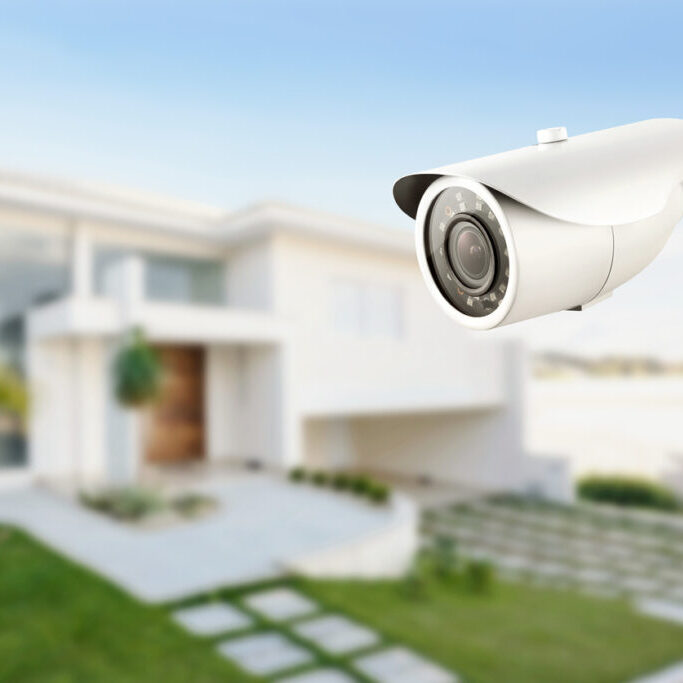Insights < BACK TO ALL INSIGHTS
Ding Dong – The Police Want Access to Your Doorbell Footage. Can They Get It?
Ding Dong – The Police Want Access to Your Doorbell Footage. Can They Get It?
By: Abbey Block
The popular electronic doorbell company, Ring, recently announced a change to its policy of sharing doorbell footage with law enforcement agencies.
In a blog post, the company, which is owned by Amazon, revealed it will sunset the “Request for Assistance” tool, which allowed law enforcement agencies to request and access users’ doorbell footage through Ring’s “Neighbors” App. Ring’s electronic doorbells are utilized by an estimated 10 million Americans and are able to capture and record both audio and video.
In a 2022 letter to Senator Ed Markey, Amazon’s vice president of public policy explained that the company allowed more than 2,000 police departments to use the Neighbor app to issue safety alerts and request doorbell footage. Facing criticism from privacy advocates, a Ring spokesperson defended the practice, noting that companies such as Ring are legally permitted to provide information to government entities if the company believes that an emergency “requires disclosure without delay.”
Now that law enforcement officers will not be able to request direct access to the doorbell footage, does this mean that what happens on your doorstep stays on your doorstep? Not exactly.
Law enforcement agencies will still be able to gain access to the doorbell footage, but they’ll have to go through a court to do so. Specifically, the police will have to apply for and obtain a warrant to obtain and review the video footage recorded by Ring doorbells.
Warrants act as a judicial permission slip, providing law enforcement with authorization to conduct searches and seizures of private property. The search warrant requirement stems from the Fourth Amendment of the Constitution, which protects the “right of the people to be secure in their persons, house, appears, and effects against unreasonable searches and seizure.”
Generally, to obtain a search or seizure warrant, law enforcement must submit an affidavit that shows there is “probable cause” to believe evidence is likely to be found in the place to be searched. Although probable cause has been called an “elusive concept” that is difficult to define, it is generally found to exist when the facts and circumstances create a “fair probability” that evidence of a crime will be found in the place to be searched. The affidavit is reviewed by a “neutral magistrate” who decides whether there is sufficient probable cause to issue the warrant. Although we, as defense attorneys, may try to invalidate a search warrant for lack of probable cause, doing so is often an uphill battle given that courts generally defer to the magistrate’s probable cause determination.
Under most circumstances, police must obtain a warrant to conduct a search inside your home. The Supreme Court has explained that the warrant requirement is premised upon the notion that each person maintains a reasonable expectation of privacy in his or her home. To this end, the Court has opined that the interior of one’s home is private “because the entire area is held safe from prying eyes.” Put another way, the home is a private, protected place because it is not generally accessible to the outside world – i.e., the homeowner maintains the right to exclude the general public’s access to their residence.
But is the same showing of “probable cause” required for the police to access and search the outside areas of your home (such as the porch or driveway) which are typically visible to and accessible by the outside world?
The Supreme Court answered this question Oliver v. United States when it held that the area surrounding the outside of one’s home – referred to as the “curtilage” – was protected by the Fourth Amendment. As a result, the Court explained, under most circumstances the police cannot search the curtilage of one’s home without first obtaining a warrant.
Since this decision, other courts have clarified that areas immediately surrounding the home, such as the garage, driveway, patios, and decks qualify as the “curtilage” of the home. As explained by the Supreme Court in Florida v. Jardines, the curtilage includes parts of the property “intimately linked to the home, both physically and psychologically,” and “to which the activity of home life extends.” These areas are considered “part of the home itself for Fourth Amendment purposes.”
Given these principles, it is reasonable to conclude that the police are required to obtain a warrant to access video surveillance of the curtilage of a home. Although reviewing doorbell surveillance footage may not seem like a “search” in the traditional sense, the Supreme Court has held that law enforcement’s use of electronic equipment to intrude into the privacy of one’s home qualifies as a search for Fourth Amendment purposes.
Realistically, the fact that police officers are now required to obtain a warrant to access Ring doorbell camera footage is unlikely to inhibit officer use of the video for several reasons. First, it seems likely that in most circumstances the officers will be able to satisfy the probable cause standard in seeking the warrant. As noted above, we often see Courts grant significant deference to the probable cause determinations of the issuing magistrate. Accordingly, although Ring’s new policy will require the police to jump through a few more hoops, they will still be able to access and use Ring footage as part of their investigatory process.
However, there are still ways for defendants to challenge the validity of a search or seizure warrant. For example, my firm recently filed a “Franks” motion in a pending money laundering case in which we requested that the Court either suppress the warrant entirely for lack of probable cause or hold a hearing to evaluate the validity of the statements provided in the affidavit. This type of motion arises under the Supreme Court case of Franks v. Delaware and requires defense counsel to show (1) the affiant made misleading statements or omitted material information in his or her affidavit; and (2) if the misleading information were purged from the affidavit, or if the omitted information were to be included, the magistrate’s finding of probable cause would be vitiated. If the Court grants our motion and provides us with a hearing, defense counsel will be given the opportunity to question the law enforcement officer who submitted the affidavit regarding his alleged misstatements and omissions.
Notwithstanding the warrant process, the police can also access the footage by simply asking the Ring doorbell’s owner for it directly. One exception to the Fourth Amendment’s warrant requirement is “consent,” – meaning that if you consent to the government’s review of your Ring doorbell’s footage, the police may do so without running afoul of the Fourth Amendment. Thus, although the police may no longer be able to get the footage directly from Ring, it seems likely that concerned citizens will be willing to turn over their video data voluntarily, either in the name of public safety or to appear cooperative with law enforcement.
Given the capabilities of the Ring doorbell, this means that law enforcement officers may be given access to hundreds of hours of video footage – capturing not only the suspected unlawful conduct, but also the innocent and private activities and conversations captured by the device. To this end, reviewing the footage may be like searching for a needle in a haystack, allowing the private moments of one’s home to be incidentally swept up in law enforcement’s attempts to identify a few minutes of recorded criminal activity. Accordingly, when deciding whether to voluntarily provide their Ring footage to law enforcement, citizens should be aware that the police can use any of the voluntarily provided content in their investigation – even if the video depicts criminal acts that the police weren’t initially aware of or looking for.
Ring’s change in policy highlights the clash between the ever-increasing use of surveillance in law enforcement and the bedrock principles of privacy protection inherent in the Fourth Amendment. Police surveillance is by no means a new concept (police have been obtaining search warrants for wiretaps for decades), but new and ubiquitous technology has undoubtedly made the practice easier than ever. Thus, although many Americans purchase electronic doorbells for their own convenience and safety, they may not realize that their footage can also be a powerful tool in the hands of law enforcement.





